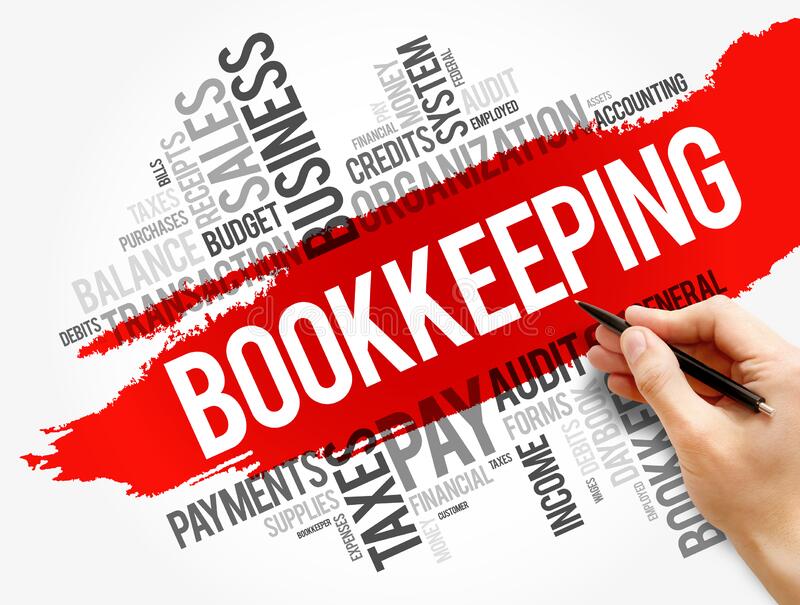If you operate an online store but you have a pencil and paper accounting, it is time to upgrade your accounting immediately. It is true that accounting for a business is among the most essential tasks of every online business, but it can be difficult to manage it if you don’t have a basic financial foundation.
Tips for Bookkeeping For Small Business Accounting Hidden Secrets Medium Matt Oliver is a blog that gained instant attention online. In the blog, Matt Oliver gave some tips which became an instant hit with small business owners.
Bookkeeping is the process of recording financial transactions in a company. This includes recording cash received and paid out, as well as the purchase and sale of goods, services, or property. It also records the day-to-day operations of a company. A bookkeeper does not provide financial advice to the company but instead provides information on how money is being spent.
Who is Matt Oliver?
Matt Oliver is an online blogger who suddenly became famous after publishing a blog on Medium. He put out a list of bookkeeping techniques for small businesses that are really helpful. Since he published a blog, several other online platforms have published guides regarding online bookkeeping.
What Records Should You Keep?
It is important to keep track of the documents which show your earnings, expenses, deductions, and credits reported on your tax returns. The said documents are as follows:
- Income
- Credit cards and bank statements.
- Cheque that are canceled
- Bills
- Accounting records, such as financial taxes, financial, and banking records
- Legal documents, such as contracts, agreements, as well as legal instances
- Payroll and payment records, as well as other records
- Business deal records
- Payment proof
- Bank’s financial statements
- Tax returns from the past
- Forms W2
Any other evidence of documentary origin to support an item of income, deduction or credit that you have included in your return of tax.
Accounting Concepts For Small Business
When you start your own small-scale business, you must understand all accounting principles to understand the financial capabilities of your business. That means, knowing what you make, how much you lose, how your money is used and spent, and so on.
To ensure that you are taking charge of your company on the right path it is essential to know how to interpret financial statements.
What Are Some Accounting Concepts for Small Businesses You Should Know?
The five most popular accounting concepts used by small-sized businesses are:
- Cost principle
- Objectivity Principle
- Revenue Recognition Principle
- Patching Principle
- Full Discovery Principle
What Are Some Benefits of Accounting for Small Businesses
The main reason for accounting for businesses is to keep track of your finances. It provides you with an accurate understanding of your financial position without relying on any speculation. In addition, your company’s accounting can also provide suggestions for methods to increase your finances in the event that there’s a place you’ve been lacking.
What are the Hidden Secrets of Bookkeeping Small Business Accounting Medium Matt Oliver?
Accounting for small businesses is a tough task. First of all, you had to find an accountant to assist you with your bookkeeping. They’ll give you the most beneficial advice regarding your business and bookkeeping for small business hidden secrets medium Matt Oliver.
- Balance Sheet
The balance sheet is a financial statement that summarizes the company’s assets, obligations, and equity. It consists of two sections: liabilities and assets. Basically, a balance sheet is a representation of a business at a particular moment. Through analyzing and examining the financial statements it is possible to assess the financial health of the business.
The balance Sheet displays your total assets, including current assets. It also provides the entire amount of your current obligations like loans to pay, and so on. Equity is the number of earnings retained from the capital market and from investments.
- Bookkeeping
It is a procedure for recording and analyzing financial transactions. It offers a comprehensive record of the business’s financial health. The process of bookkeeping begins with an initial entry, like, when the product is sold, or when the money is transferred into the company’s bank account.
The main source of data for all kinds of financial statements is Bookkeeping. Books record the financial operations of a firm. The majority of companies run their accounting systems using ledgers, or through computerized methods using accounting software.
- Capital
It’s the money that comes from the capital as well as the investments to which the entrepreneurs have contributed. It also refers to the extra income above expenses that result in profit after withdrawal and deposits made by the owner.
- Expenses
They are the processes that take money out. These expenses can include business loans and monthly expenses such as salaries, electricity and water bill rent, and other expenditures as well as cash-out. It is the antinomy of income, which is the amount of reduction in equity of the owner.
- Income
This amount refers to the growth in the equity of the owner through selling and other business activities and operations.
Should You Outsource Accounting?
A lot of small businesses end up being confused about whether or not they should outsource accounting. Outsourcing accounting work has its benefits and some drawbacks. If you don’t have a team of bookkeepers, then it can be more pocket friendly to go with outsourcing.
Benefits of Outsourcing Bookkeeping for Small Business
- Outsourcing bookkeeping can be cost-efficient.
- Won’t have to spend time and cost on hiring bookkeepers for business.
- You’ll be able to divert your time to more important tasks.
- You’ll be able to get services from expert accountants and bookkeepers.
- Helps in scaling accounting services with ease.
- You can use accounting automation tools to prevent the risks of bookkeeping errors, and other costly mistakes.
- An accounting expert can act as your advisor
Drawbacks of Outsourcing Bookkeeping for Small Businesses
- Bookeeping service providers can add hidden costs to your bill, making it more expensive.
- As a business owner, you have limited control over your business’s finances if you hire a third-party service provider. It would be wise to go through the onboarding process while clearly outlining the roles and responsibilities.
- There are specific advantages of having an employee on the staff. When you outsource the work, you can have accessibility issues.
Conclusion – Bookkeeping for Small Business
Bookkeeping for small businesses, ensures you consider your finances more seriously as a business owner with a small budget. It starts by making sure you have the proper bookkeeping and financial records for your company. It’s not enough to keep the documents until they are turned over upon request by Tax collection agencies. Maintain most records for a minimum of three years. However, in certain instances, you’ll need to keep documents for five years.





